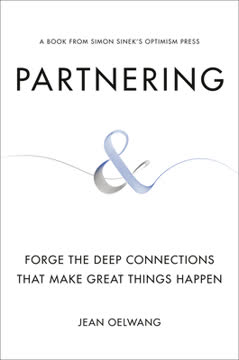Key Takeaways
1. Deep Connections Are the Foundation of a Meaningful Life
The path to living a meaningful life is through the Deep Connections we nurture with each other.
Beyond individualism. The author's journey, sparked by witnessing Nelson Mandela and Graça Machel's profound bond, revealed that true success and meaning stem not from individual accomplishment but from the enduring, purposeful relationships we build. Society often pushes us towards competition and shallow networking, leading to a "crisis of loneliness" and disengagement, but the most impactful legacies are built together.
Relationships multiply impact. Deep Connections are "got your back" friendships that help us become our best selves and exponentially increase our positive influence in the world. Legendary collaborators, from the Tutus fighting apartheid to Ben & Jerry's co-founders, achieved their impact through meaningful relationships, demonstrating that no one achieves greatness alone.
A relationship reset. The world needs a fundamental shift from hyper-individualism to prioritizing deep, lasting connections. This "relationship reset" is crucial for tackling humanity's biggest problems, as it fosters the collaborations necessary for social movements and radical change. As Warren Buffett wisely noted, the true measure of success is whether the people you care about love you back.
2. Unite Around a "Something Bigger" Purpose
Purpose multiplies through our relationships and deepens our connections, but only if we are able to stop asking what we can get out of our relationships and start asking what we can give to the world through them.
Shared mission fuels longevity. A "something bigger" purpose, an outcome beyond individual self-interest, acts as the bedrock for flourishing, enduring relationships. This shared mission broadens focus beyond surface conflicts, allowing partners to weather inevitable ups and downs and supercharge their collective impact.
Inspiring examples abound. From scientists Sherry Rowland and Mario Molina, whose shared purpose to protect the ozone layer saved humanity, to Archbishop Desmond and Leah Tutu, whose unbreakable bond fueled their fight against apartheid, a common, authentic mission drives extraordinary achievements. This purpose doesn't have to be world-changing; it simply needs to light your heart and soul on fire, like raising children to be their best selves or building a great workplace.
Purpose is an evolution. "Something bigger" is not a static goal but an ongoing evolution that partnerships help discover and refine. It's about finding a path that leverages unique gifts for positive difference, whether through a shared mission or by supporting each other's individual callings. This commitment to service, often instilled from a young age, becomes a grounding force that keeps partners on track.
3. Go "All-In" with Unconditional Commitment
It’s making a commitment to the commitment.
Unconditional love and safety. Being "all-in" means consciously deciding to be there for each other and your shared mission, no matter what. It's a safe harbor where vulnerability is embraced, risks are taken, and partners know they have 100% of each other's backs, fostering freedom and confidence to pursue audacious goals.
Beyond self-interest. This commitment transcends self-centered, conditional love, focusing instead on giving unconditional love and learning from another's truth. As Jacqueline Novogratz's mother taught, the question isn't "Does someone love me?" but "Am I loving enough?" Holding back, even slightly, eventually undermines the relationship's depth.
Hard work and resilience. Becoming all-in is not automatic; it requires courage, patience, and creative approaches to conflict. The Carters, despite a near-divorce, exemplified this by consistently working through disagreements. Similarly, Azim Khamisa and Ples Felix forged an unbreakable bond of forgiveness and shared purpose after a tragic loss, demonstrating that strength can emerge from opposing forces and deep divides.
4. Cultivate a Moral Ecosystem of Six Virtues
I think that it is important in any partnership that it has to transcend cognitive and even emotional connection. It has to get to that deep spiritual connection for you to sustain, for you to be trusting, for you to be respectful, for you to be able to look at conflict as an opportunity to be able to create love and unity.
A living, interconnected system. Successful partnerships are sustained by a moral ecosystem, a daily practice of six essential virtues that become reflexive responses, fostering kindness, grace, and unconditional love. These virtues are:
- Enduring Trust: Faith in each other and the unknown, assuming good intentions.
- Unshakable Mutual Respect: Valuing differences, deep listening, and honoring each other.
- United Belief: Shared confidence in each other and the possibility of achieving the impossible.
- Shared Humility: Recognizing limitations, valuing diversity, and being in service.
- Nurturing Generosity: Giving freely, sharing good fortune, and celebrating shared glory.
- Compassionate Empathy: Taking loving action, letting go of judgment, and creating vulnerable spaces.
Ozone community's example. The global collaboration to protect the ozone layer, led by figures like Mostafa Tolba and Stephen O. Andersen, thrived because a core group of scientists and leaders modeled this ecosystem. Their unwavering trust, respect, and generosity created an environment where diverse professionals could unite for a common, audacious goal.
Beyond the individual. This ecosystem extends beyond personal relationships to shape organizational cultures, as seen with Airbnb's trust-based model or Draper Richards Kaplan's humility-driven philanthropy. It creates psychological safety, allowing individuals to grow, innovate, and contribute to something bigger without ego or fear.
5. Create "Magnetic Moments" Through Intentional Practices
Open, trusting communication at all times and on all issues. We had a continuous dialogue, about every issue under the sun!
Intentional experiences for connection. Magnetic moments are thoughtfully planned rituals, traditions, and daily practices that foster presence, spontaneity, and wonder in relationships. They are the "storybook of your shared history," deepening connections and strengthening the ecosystem of virtues.
Four categories of moments:
- Joy and Play: Frequent laughter, pranks, and shared activities (e.g., Richard Branson and Peter Gabriel's water fights, Mick and Caskey Ebeling's "dotysofus").
- Curiosity and Wonder: Asking questions, exploring new ideas, and appreciating the world (e.g., Stewart Brand and Ryan Phelan's "reinventing the world" breakfasts, Not Impossible Labs' naive questions).
- Honest Communication: Dedicated time for open dialogue, sharing dreams, and addressing concerns (e.g., Jo Confino and Paz Perlman's "Friday Talk," Delle brothers' "Code 10" calls).
- Community: Involving wider circles of friends, family, and colleagues (e.g., Stephen O. Andersen inviting spouses to ozone conferences, Tony Hawk's open-door dinners).
Consistency and evolution. These moments, like Innocent Drinks' quarterly off-sites or the Carters' daily debriefs, are not static; they evolve as relationships deepen. They require thoughtful planning and discipline, but their power lies in creating lasting memories and continuously stoking the fire of connection.
6. "Celebrate Friction" to Spark Growth and Innovation
We are happy each time we disagree, because we know we’re going to learn something new; it’s going to make some sparkles.
Harnessing conflict gracefully. Friction is inevitable in any relationship, but successful partnerships don't eliminate it; they harness it. Instead of drama and personal attacks, they view disagreements as "sparkles"—opportunities to learn, grow, and co-create better solutions.
Approaches to productive friction:
- Understand the Why: Empathetic listening to grasp the other's perspective and past experiences.
- "What If the Other Person Is Right?": A humble mindset that opens space for new ideas.
- Construct a "Third Way": Combining the best of differing ideas to create a superior solution.
- Courageous Space: Dedicated time and safe environments for brave, honest conversations.
- Veto Power/Correction Mechanisms: Pre-agreed structures to prevent conflicts from escalating (e.g., Ben & Jerry's veto rule, Delle brothers' investment committee).
- Humor: Lightening difficult situations with laughter and self-deprecation.
- Positive Amnesia: Forgiving and releasing past offenses to avoid resentment.
Ego-checking and mutual growth. Partners like Bertrand Piccard and André Borschberg learned to celebrate friction by constantly checking each other's egos and using honest feedback as a catalyst for personal and collective improvement. This approach ensures that competition is healthy, not hurtful, and that every disagreement leads to deeper understanding and stronger bonds.
7. Build "Collective Connections" for Global Impact
What they would implement, and how, has been based on a circle of friends, an ever-growing circle of friends, that has worked tirelessly under conditions of personal trust.
Deep Connections as catalysts. Large-scale collaborations, like the Montreal Protocol or the eradication of smallpox, succeed not through individual heroes but through vast networks of "collective connections" anchored by a few strong Deep Connections at their core. These central partnerships model the first five degrees, inspiring and mobilizing thousands.
Collaborative design principles:
- Intoxicating "Something Bigger": A clear, inspiring purpose that unites diverse individuals.
- Start and Strengthen: Begin with willing partners and manageable goals, then expand.
- Open Tent: Inclusive approach, removing barriers to entry, and welcoming diverse perspectives.
- Unlikely Connections: Bridging divides across sectors, generations, and backgrounds (e.g., Thatcher/Reagan, scientists/industry).
- Relational Scaffolding: Flexible frameworks that encourage distributed leadership, clear roles, and positive incentives.
- Culture of Service and Friendship: Prioritizing collective good over individual agendas, fostering trust and respect.
Lessons from the ozone success. The Montreal Protocol's success stemmed from its human story: a global network of friends and allies, from scientists to politicians, who put aside individual interests to save the world. This relational approach, documented by Nancy Reichman and Penelope Canan, created "conditions for shared excellence" that are replicable for today's complex global challenges.
8. Embrace Interconnectedness for a Thriving Future
My humanity is bound up in yours, for we can only be human together.
Planetary Boundaries and shared destiny. Johan Rockström's Planetary Boundaries framework highlights Earth's nine interconnected biophysical processes, four of which are already transgressed. This scientific understanding, inspired by ozone pioneers, underscores that human actions have global impacts, demanding unprecedented cooperation for our survival.
A revolution of social virtues. In an increasingly divided world, fueled by fear and self-interest, a "revolution of social virtues" is essential. The COVID-19 pandemic starkly revealed our global interconnectedness and the urgent need for collective response, yet also exposed the pitfalls of national and personal agendas.
Shifting measures of success. To navigate this new world order, we must redefine success, moving beyond fame and money to prioritize meaningful relationships and how we use our time to improve others' lives. This involves actively seeking out and valuing Deep Connections that are radically different from our own, challenging our siloed thinking.
The power of "we." The wisdom from enduring partnerships demonstrates that we already possess the capacity for global collaboration. By nurturing Deep Connections as epicenters for large-scale movements, we can transcend self-interested individualism, build strong ecosystems of trust and love, and collectively create a thriving future for humanity and the planet.
Last updated:
Review Summary
Partnering receives mostly positive reviews, with readers praising its insights on building deep connections and collaborative relationships. Many find the stories inspiring and the advice practical for both personal and professional settings. Some criticize the writing as repetitive or verbose, while others appreciate the thoroughness. The book's emphasis on partnership over individualism resonates with many readers, who find it a refreshing perspective on leadership and making a positive impact in the world.
Similar Books



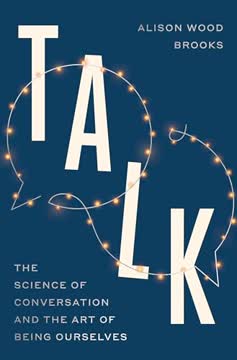
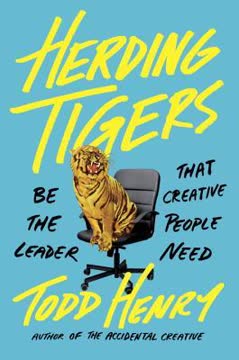
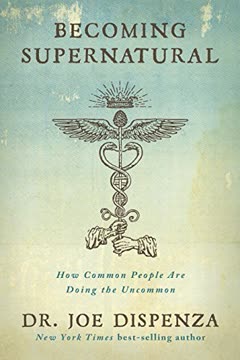
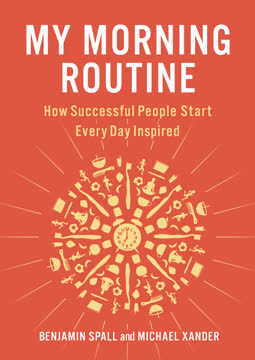
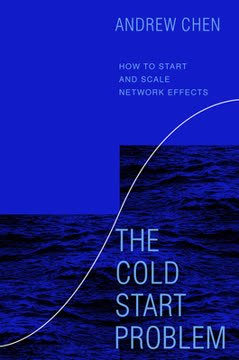


Download PDF
Download EPUB
.epub digital book format is ideal for reading ebooks on phones, tablets, and e-readers.
